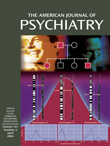To the Editor: We appreciate the many thoughtful comments raised by the correspondents regarding our study about police suicide in New York City. Dr. Violanti, Dr. Roth, Dr. Dowling and Mr. Moynihan, and Dr. Hem and colleagues raise the same concern: that comparing police officers who are screened out for mental disorders with a general population that presumably has higher rates of serious mental illness makes it appear that police are at lower risk for suicide. We acknowledged this in our discussion, where we stated, “Since recruits undergo psychological screening, it could be argued that a police suicide rate that is not substantially lower than that of the general population is effectively high” (p. 2070). Our main finding was not so much that police rates were low per se but rather that they were not inordinately high. It must be added, however, that screening for mental illness among job applicants is always difficult since candidates are likely to minimize the reporting of their own psychopathology. In addition, many police recruits are screened at an age that may be younger than the maximum period of the risk for the onset of some mental disorders.
Regarding misclassification bias, as raised by Dr. Dowling and Mr. Moynihan, we accounted for accidents and undetermined deaths that involved methods that are typically used in suicide cases. Even if one assumes that such deaths were misclassified and really were true suicides, the police suicide rate was not different from the general population rate. The proposition that some homicides of police officers were actually suicides is difficult to prove and places us all on slippery ground. Moreover, this argument could also be made for some homicides and accidents in the general population.
We agree with Dr. Hem and colleagues that studies in different communities with different methods and different time frames have yielded inconsistent results. Because of the low base rates for suicide and the instability of rates, we do think it is important for future studies of police suicides to examine long time periods rather than focus only on several years.
We would also agree with the correspondents that our study should not be interpreted to mean that suicide is not a problem, a statement that we, ourselves, made in our discussion. Clearly, the loss of a single life to suicide is tragic. Police work is, no doubt, stressful for the officers and their families. Police officers deserve as much support as possible in coping with the stresses of their occupation. We hope additional studies can help clarify the elements that contribute to suicide risk among officers.

